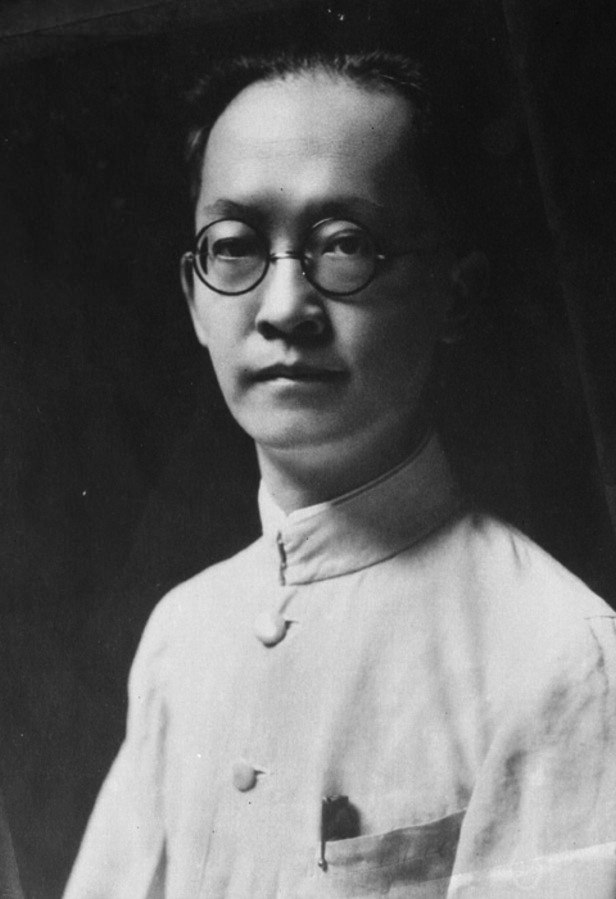 |
| Hu Hanmin (Hu Han-Min) |
Hu Hanmin was a close political associate of Sun Yatsen, founder of the Chinese Republic. The Hu family were minor civil servants who settled in Guangdong (Kwangtung) province. A brilliant scholar, Hu supported himself and a younger sister by working as a tutor after his parents' death.
China's defeat in the Sino-Japanese War (1894–95) turned him into a revolutionary and took him to Japan, where he studied law and joined Sun's newly formed Tongmeng hui (T'ung-meng hui), or United Alliance, dedicated to overthrowing the Qing (Ch'ing) dynasty.
He served as the organization's secretary and wrote for its official publication, the Min Bao (Min Pao), or People's Journal. One article, "The Six Principles," elaborated on Sun's ideals: nationalism, republicanism, and land nationalization, plus three items concerning immediate issues that faced the revolutionists in Japan.
  |
An eloquent writer, Hu played a major role in the pen war between advocates of Sun's ideals and those of Kang Youwei (K'ang Yu-wei), who favored a constitutional monarchy. He also traveled widely throughout South and Southeast Asia to organize support and raise funds for the Tongmeng hui.
Hu was elected military governor of Guangdong province after the outbreak of the October 10, 1911, revolution. He and other followers of Sun were ousted from their positions in 1913 by President Yuan Shikai (Yuan Shih-k'ai), who quashed democracy in an attempt to make himself emperor.
When Sun established a government in Canton in 1923 with the help of a local warlord and began reorganizing the Kuomintang (KMT, Nationalist Party) with the assistance of the Soviet Union, Hu was again by his side, together with Wang Jingwei (Wang Ching-wei) and a rising star, Chiang Kai-shek.
Sun's death in 1925 led to a succession crisis in the Kuomintang. Wang Jingwei led the left wing, who were supported by Soviet advisers and were the immediate winners. Hu led the anticommunist wing of the party; they lost power and were forced out of Canton.
Chiang Kai-shek led the center and remained in Canton, focusing on training a new army. In 1926 Chiang set out as commander in chief of the Northern Expedition to unify China. Military success led him to break with the left and the Soviet-dominated government under Wang Jingwei in 1927 and also led to the return to power of the anticommunist wing of the Kuomintang, including Hu.
After completing the Northern Expedition in 1928, the Nationalists established a government in Nanjing (Nanking). Wang and his supporters lost power, while Hu was appointed president of the legislative Yuan (the legislature), which was charged with drafting legislation, passing the budget, and formulating new legal codes.
Chiang dominated the Nationalist government during the Nanjing era (1928–37) and faced several domestic problems. One was how to deal with the ambitions of his two senior colleagues, Wang Jingwei and Hu Hanmin. Chiang initially allied with Hu, but they broke in 1931 partly over interpretation of Sun's wishes on how to implement his programs.
Chiang became so angry with Hu that he briefly put him under house arrest. Hu was so infuriated that he rejected all offers to rejoin the government, which forced Chiang to ally with Wang Jingwei. The power struggle between Chiang, Hu, and Wang showed the ideological and personality struggles in the Kuomintang after the death of its founder, Sun Yat-sen.